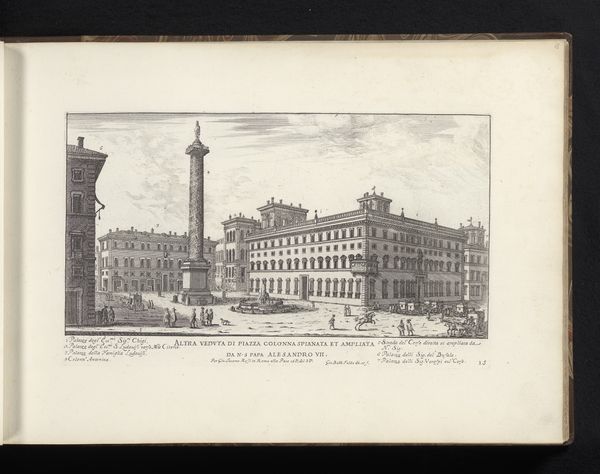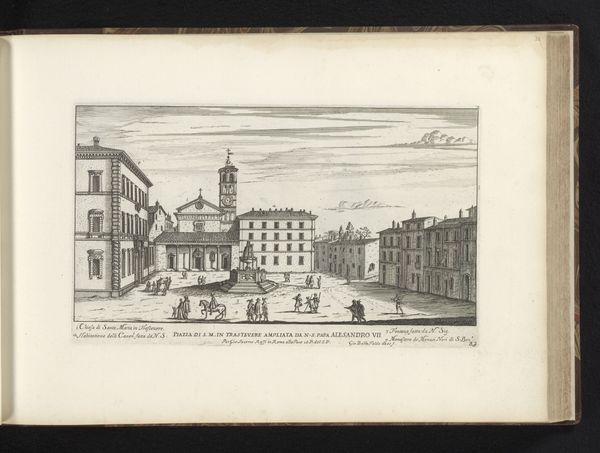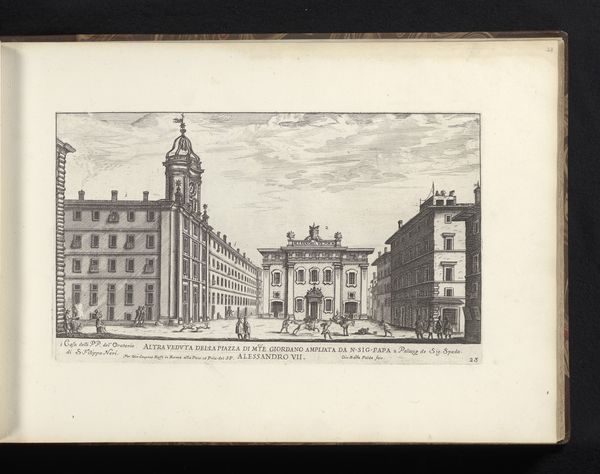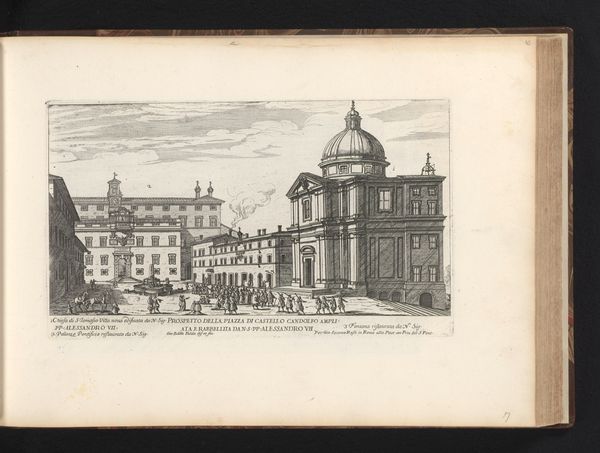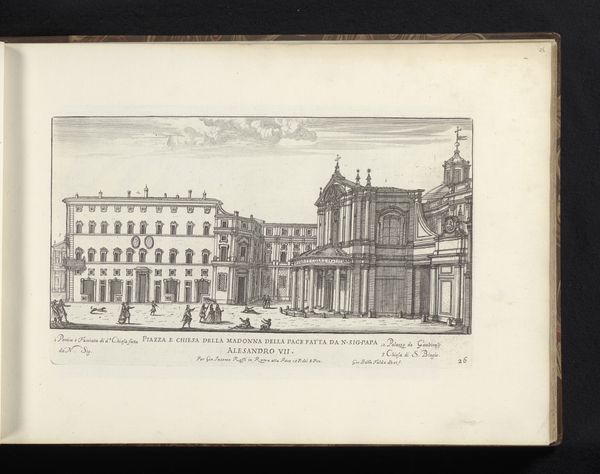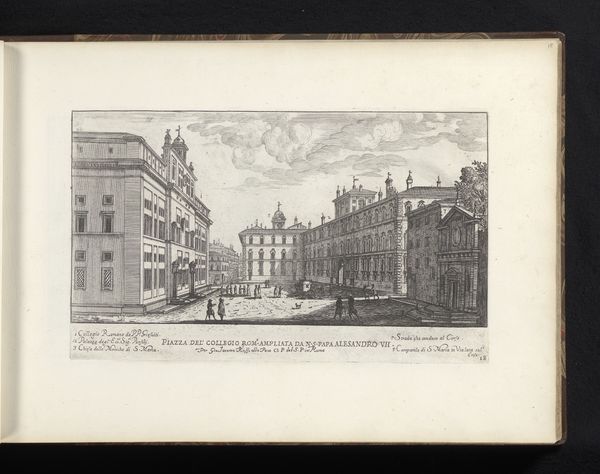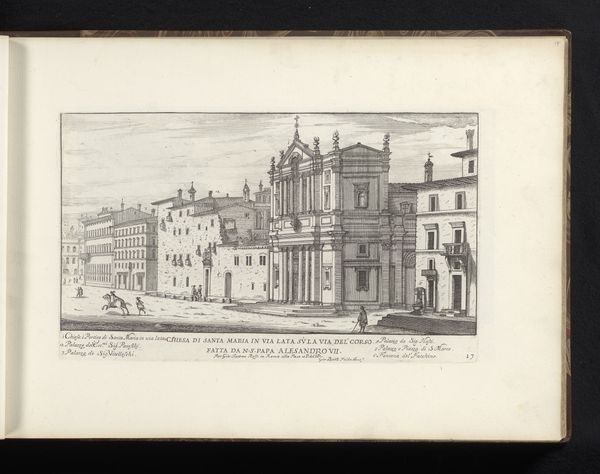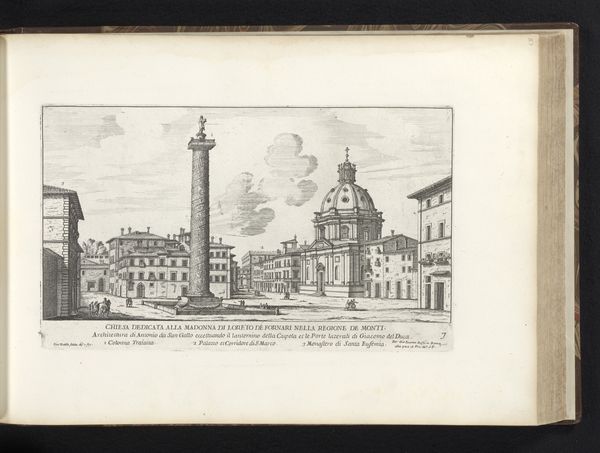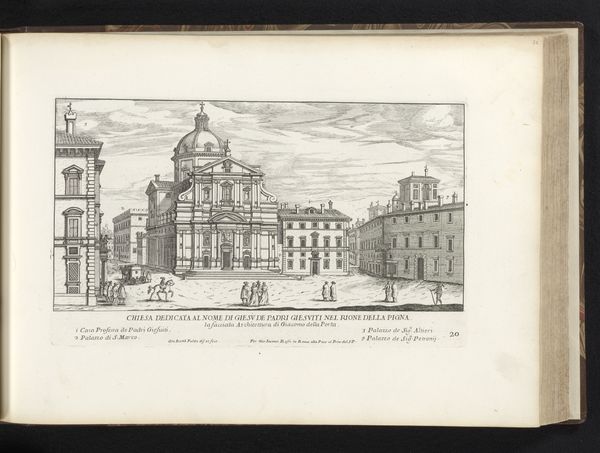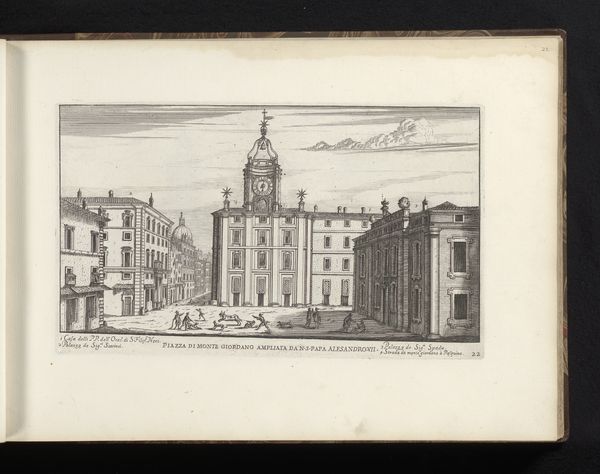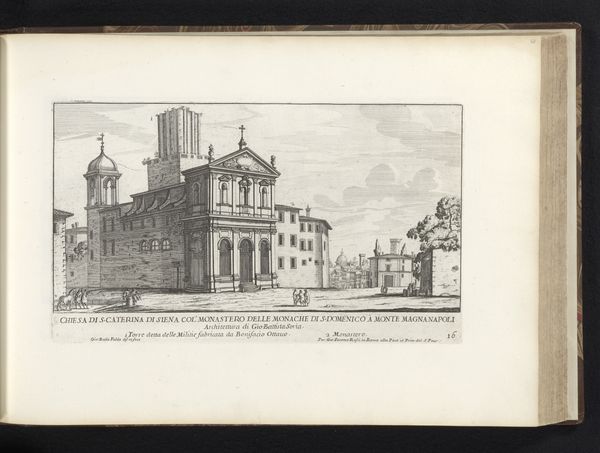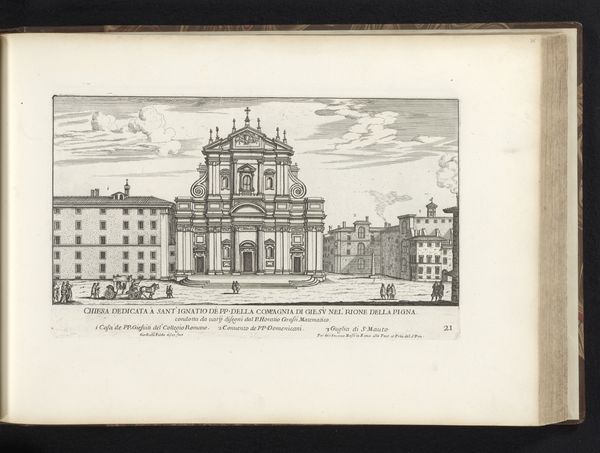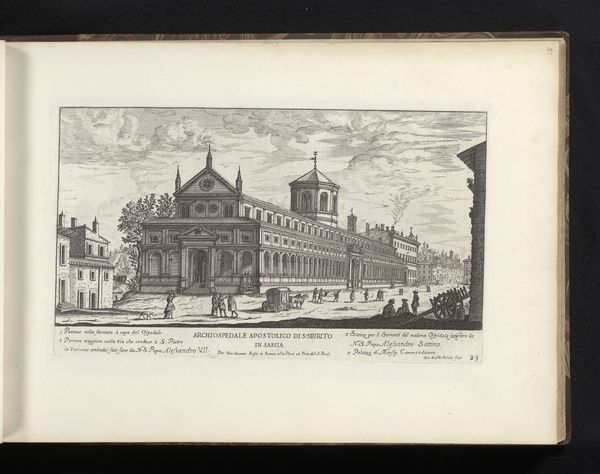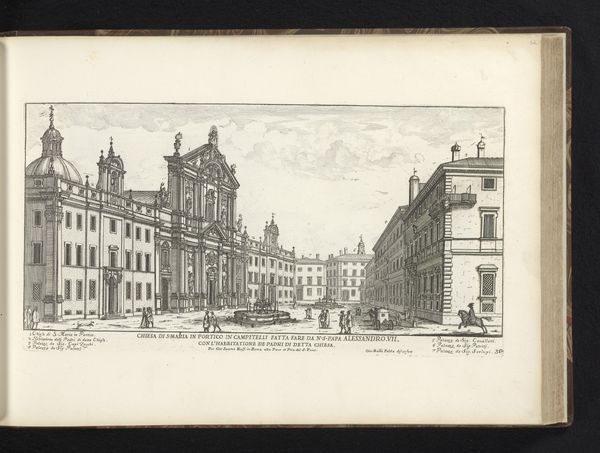
print, engraving, architecture
#
baroque
# print
#
landscape
#
cityscape
#
italian-renaissance
#
engraving
#
architecture
Dimensions: height 170 mm, width 287 mm
Copyright: Rijks Museum: Open Domain
Giovanni Battista Falda created this print of the Column of Marcus Aurelius in Rome in the second half of the 17th century. It offers a glimpse into the urban landscape and the ongoing dialogue between antiquity and the present. Made during the Roman Baroque period, this print reflects the city's transformation under powerful patrons like Pope Alexander VII, whose name is inscribed in the image. Note how Falda captures not just the column itself, but the surrounding piazza, alive with figures and carriages. What's being documented here is a conscious reshaping of urban space to reflect papal power. The column, once a symbol of Roman imperial authority, is now framed by Baroque architecture, a testament to the Catholic Church's dominance. Understanding this print means looking at the socio-political context of papal Rome. Resources such as period maps, architectural plans, and records of papal commissions, will help you understand the intentions behind these urban interventions. The arts are never neutral; they're always embedded in a network of power, patronage, and cultural values.
Comments
No comments
Be the first to comment and join the conversation on the ultimate creative platform.
